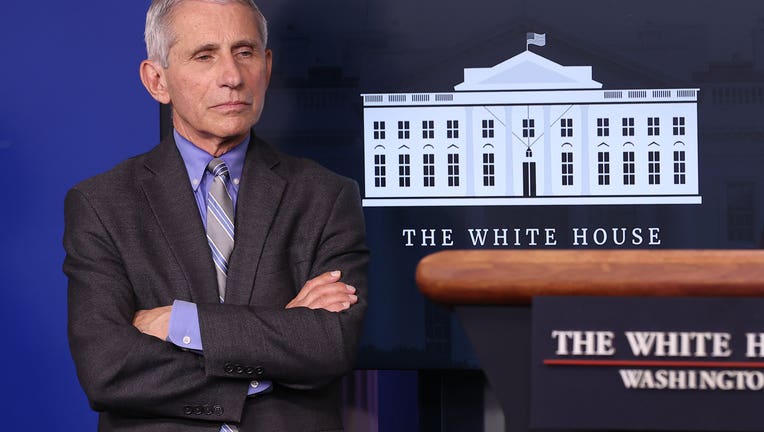Fauci: 'We're not there yet' on key steps to reopen economy

WASHINGTON (AP) — Dr. Anthony Fauci, the government’s top infectious disease expert, said Tuesday the U.S. does not yet have the critical testing and tracing procedures needed to begin reopening the nation’s economy, adding a dose of caution to increasingly optimistic projections from the White House.
“We have to have something in place that is efficient and that we can rely on, and we’re not there yet,” Fauci said in an interview with The Associated Press.
Fauci’s comments come as President Donald Trump and others in the administration weigh how quickly businesses can reopen and Americans can get back to work weeks after the fast-spreading coronavirus essentially halted the U.S. economy. Trump has floated the possibility of reopening some areas by May 1 and said he could announce recommendations as soon as this week.
Among Fauci’s top concerns: that there will be new outbreaks in locations where social distancing has eased, but public health officials don’t yet have the capabilities to rapidly test for the virus, isolate any new cases and track down everyone that an infected person came into contact with.
“I’ll guarantee you, once you start pulling back there will be infections. It’s how you deal with the infections that’s going to count,” Fauci told the AP.
Key is “getting people out of circulation if they get infected, because once you start getting clusters, then you’re really in trouble,” he added.
At the same time Fauci is directing critical government research, he’s also one of the administration’s leading spokespeople on the virus, spending hours each week by Trump’s side during his lengthy, daily White House briefings.
Fauci said his public role is important but conceded that the duration of those briefings — Monday’s ran for nearly two-and-a-half hours — was “really draining” and that doesn’t even count preparation and waiting for it to start.
“If I had been able to just make a few comments and then go to work, that would have really been much better,” he said. “It isn’t the idea of being there and answering questions, which I really think is important for the American public. It’s the amount of time.”
Washington, Oregon, California announce coronavirus pact
Washington, Oregon, California announce coronavirus pact

